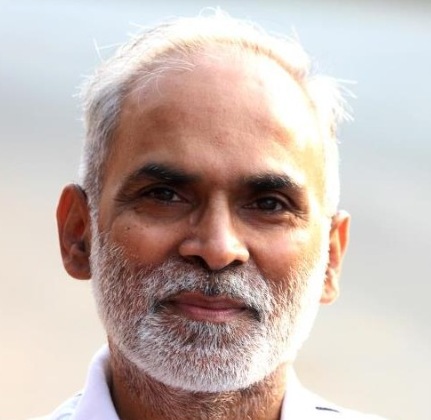Nagpur Today spoke to renowned city Paediatrician Dr. Satish Deopujari about the challenges and joys of healing children, and the responsibility involved in being a doctor. Following are excerpts from the interaction:
Meghna: What inspired you to take up medicine as a career and Paediatrics as your specialty?
Satish Deopujari: Unlike other sciences, Medicine is a Science that deals with humans as a whole. A Human Being cannot be fit into a category, unlike in Mathematics, Chemistry or Physics. In maths, two and two will always be four, but in medicine each case and every individual is different. This is what drew me towards medicine.
Paediatrics, as I always say, is the branch that delivers an adult to society. In medicine, the patient remains almost the same between the age of twenty and sixty. But, in Paediatrics, the patient is constantly changing. If I have treated you as a newborn, and you come back to me as an eighteen year- old, I won’t be able to recognise you. No other part of medicine sees such a change.
Meghna: What is the biggest difference between treating a child and treating an adult?
Satish Deopujari: While treating a child you need to have that particular mindset, and also be very patient. It’s not everybody’s cup of tea. For example, I can’t force a child’s eye or mouth open if I want to inspect his eye or throat. I can’t tell the child to open his mouth and expect him to obey, unlike an adult. So, I talk to them and take my opportunity as soon as the child opens their mouth to reply. Moreover, small children have often kicked me or passed urine on me during my examination. I have to take such things in stride.
There are positives to treating children as well. There is no such thing as dishonesty when it comes to treating a child. 80% of the children who come to me hug me. That intent hug is something an adult would never do.
Meghna: Children up to a certain age can’t speak out and tell you exactly what is troubling them. How do you diagnose such cases?
Satish Deopujari: Paediatricians often have to think like security agents. If a child decides to fool you, even the FBI cannot catch them. You can’t be harsh with them, so you have to be very tricky. For example, there was a young fellow, who had diabetes. At one point, his insulin requirement went down from 50 points to 1, and just his sugar level would become normal with just one dose. It took us quite some time to figure out that he was giving himself extra doses of insulin from the vial that his parents had made him responsible for. He thought that doing so would convince his parents that he was cured, and put him off treatment.
Meghna: The use of tests like the Ultrasound for sex determination is banned, but recent press reports have revealed that the practice is quite prevalent in the city. What are your views on this?
Satish Deopujari: In my opinion, we would have better results if, instead of banning these tests for sex determination, we go about it the other way round. I say we allow these tests everywhere, determine the sex and put it on record that so- and- so is carrying a female child. If we do that, the sudden termination of pregancy will be immediately noticed and a formal investigation will be possible, which cannot be done if these tests are done covertly for fear of the law. Discrimination against a girl child doesn’t take place only in the pre- natal stage. A girl has to deal with it all her life, through abuse and neglect. I intend to talk to the medical council about this as well- if we put the female child on record, it will be the responsibility of all society to see that no harm comes upon her
Meghna: How important is it for a doctor to take some time out from his regular practice and use skills to treat the underprivileged?
Satish Deopujari: It is unfair that such questions are constantly asked only doctors, when they are just as valid for any other profession, even Journalism. Since medicine is one profession where two plus two won’t always equal four, the doctor is blamed for everything that happens to the patient. For example, one of the causes for a headache can be Brain Tumour, but every patient who comes to me does not have a brain tumour. Parents often come to me with children who have swallowed objects which are sharp, and 99% of the cases the objects come out of the system naturally. If, however, it doesn’t happen in any case, fingers will be pointed at me and questions will be asked about why I didn’t do a procedure like an endoscopy to take it out. This so- called “error of judgement” is a very important aspect of the medical profession. Patients often come with me asking about the causes for their health problem, and address me in a way that suggests that it is me who has given them the virus to begin with. The patient plays a very important part in his own treatment, as well as to prevent disease- the doctor isn’t everything.
– Meghna Majumdar













